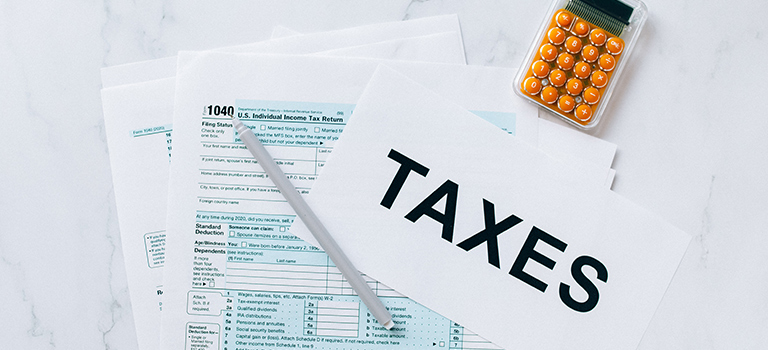Understanding the legal landscape for landlords in the London property market
- Advice Clinic
- 21.08.23
- Widya Lestaluhu
As a landlord in the captivating London property market, it is crucial to have a comprehensive understanding of the legal landscape that governs this dynamic real estate realm. London offers an exciting landscape for investment and rental opportunities, from the luxurious allure of prestigious areas to the diverse property types.
Through this article, we will delve into the essence of London’s property market regulations, cover the responsibilities that landlords must uphold and provide valuable insights to navigate the legal intricacies. Equipping yourself with this knowledge enables you to navigate the market confidently and ensure a smooth and successful landlord experience.

Landlord responsibilities in London
As a landlord, you have certain obligations to ensure the safety and well-being of your tenants. You must maintain rented properties in a safe condition, free from any health hazards. You are responsible for installing and regularly testing your rental property’s smoke and carbon monoxide alarms.
Also, ensure that all gas and electrical equipment in the property is safely installed and maintained periodically.
Housing Health and Safety Rating System (HHSRS): Local councils use the Housing Health and Safety Rating System (HHSRS) to ensure the safety of rented properties. During an inspection, the council’s inspectors assess 29 health and safety areas and categorise each hazard they find as either Category 1 or Category 2 based on its seriousness.
As a landlord, it is essential to take action on enforcement notices issued by the council and adhere to any required improvements. You also have the right to appeal enforcement notices.
If a serious hazard is found, the council can
● issue an improvement notice,
● fix the hazard themselves and charge you, or
● restrict property usage
The council may conduct an HHSRS inspection if:
● your tenants request an inspection due to concerns about the property’s safety
● the council surveys local properties and identifies potential hazards in your property
Government-approved Deposit Protection Scheme in London: Landlords are required to protect their tenant’s deposit in a government-approved deposit protection scheme in London. These schemes securely hold the deposit and provide a fair resolution in disputes. These schemes further ensure that the tenant’s deposit is securely held and can be returned at the end of the tenancy, provided there are no disputes.
Right to rent policy: Landlords in England must also verify the immigration status of prospective tenants to ensure they have the right to rent. Under the Right to Rent policy in England, legal obligations for landlords in London require them to check the immigration status of their prospective tenants to ensure they have the right to rent a property in the country.
Making repairs
Maintaining your property’s condition and addressing repairs promptly is crucial. Ensure the unit meets all gas and electrical systems’ safety standards.

Entering the property: You have the legal right to enter the property to inspect it or carry out repairs. Provide at least 24 hours notice to your tenants, except in emergencies.
You are generally responsible for repairs to the
● property’s structure,
● sanitary fittings,
● heating and hot water systems, and
● any damages resulting from attempted repairs
As the owner of a block of flats, you must address repairs in common areas, including staircases. Councils can request that landlords rectify issues in these shared spaces. Also, if another tenant damages a tenant’s flat, you may be required to undertake the necessary repairs.
Important: If your property sustains significant damage from a fire, flood or similar incident, you can choose not to rebuild or renovate it. It is important to note that if you decide to proceed with the reconstruction or renovation, you are not permitted to pass on the costs of these repairs to your tenants.
Rent abatement: In situations where repairs cause significant disruption, tenants may be entitled to claim a rent reduction, referred to as rent abatement. This reduction depends on how much the property becomes unusable during the repairs.
Rent increases
The tenancy agreement should outline how and when rent reviews will be conducted. The rent control laws in London also need regulated tenancies to entail specific regulations concerning rent increases.

● Periodic tenancies: For periodic tenancies, rent can usually be increased only once a year. Landlords can also agree on a rent increase with their tenants, document it in writing or serve a notice proposing a new rental amount.
● Form 4: Landlord’s notice: To propose new rent for regulated tenancies, it is necessary for landlords to complete Form 4: Landlord’s Notice and provide tenants with a minimum of one month’s notice.
Reaching a mutual agreement with your tenant is advisable and a crucial part of tenants’ rights in London to implement a rent increase successfully. Documenting this agreement in writing is essential, ensuring both parties sign the record as evidence of the revised rental terms.
●Fixed-term tenancies: For fixed-term tenancies, rent increases depend on the terms outlined in the agreement.
First tier Property Tribunal: If your tenants disagree with the proposed rent increase and consider it unfair, they can seek a resolution by approaching the First Tier Property Tribunal. This tribunal can impartially assess the situation and determine a fair and appropriate rent amount.
Tenant fees: The Tenant Fees Act 2019 is a significant piece of legislation in the rental sector that aims to protect tenants from excessive fees and improve transparency in the rental market. This Act applies to most tenancies in England, including assured shorthold tenancies, student accommodations and occupation licences.
One of the key provisions of the Tenant Fees Act is that it prohibits landlords and agents from charging fees such as administration fees, inventory fees, credit check fees and fees for referencing.
Under this Act, there are still some permitted payments that can be charged to tenants, which include:
● holding deposits — limited to a maximum of one week’s rent
● security deposits, which are capped at five weeks’ rent for annual rents below £50,000
● six weeks’ rent for annual rents of £50,000 and above
Settling disputes
Addressing disputes with tenants in an amicable manner is essential.
● Speak with your tenants directly about any concerns or issues
● If initial communication fails, write a formal letter outlining the problem
● Consider a mediation service as a cost-effective and efficient alternative to court proceedings
● If all else fails, taking legal action and going to court may be necessary. Be aware of the specific rules for settling disputes in your area

Small Claims Court: If legal action becomes necessary, your case may be brought before a small claims court, which handles cases valued at less than £10,000 (or £1,000 for property repair-related cases). These courts offer a free mediation service for small claims, providing an opportunity for resolution through remote communication.
If you seek to regain possession of your property due to rent arrears, you can initiate a possession claim online at https://www.possessionclaim.gov.uk/pcol/.
Reasonable notice to quit: When evicting tenants with an excluded tenancy or license, such as those who live with you, the process does not typically require going to court. Instead, you can provide them with reasonable notice to quit — often equivalent to the length of the rental payment period.
For instance, if your tenants pay rent weekly, you can give them one week’s notice. While the notice does not necessarily have to be in writing, it is advisable to maintain a clear record of communication.
Possession proceedings:
● Landlords can use Section 21 as an eviction notice to regain possession of their property at the end of an assured shorthold tenancy (AST). It is a no-fault eviction process, allowing landlords to seek possession without providing a specific reason. This notice grants tenants a minimum of two months to vacate the property.
● A Section 8 notice is another eviction method landlords use in England. Unlike Section 21, a Section 8 notice is served when there are specific grounds for eviction. These grounds include rent arrears, breach of the tenancy agreement or anti-social behaviour. This notice period varies.
● A standard possession order is a legal order obtained through court proceedings, enabling landlords to regain possession of a property from a tenant. This order can be sought when a tenant does not voluntarily vacate the property after receiving an eviction notice. It involves a court hearing where both parties present their case, and a judge determines whether possession should be granted.
● On the other hand, an accelerated possession order is a faster and simpler court procedure used to obtain possession of a property from a tenant. It is available when a landlord has served a valid Section 21 notice and does not seek to claim any outstanding rent. This procedure does not involve a court hearing; the judge reviews the submitted paperwork to decide whether possession should be granted.
● Lastly, excluded tenancies or licenses refer to specific types of agreements that do not provide full legal protection to tenants. Examples include lodgers or tenants living with their landlord in the same property, certain student accommodations and properties let by educational institutions.
Paying taxes
If you or your company rent out residential properties, you must pay tax on the profit after deducting allowable expenses. These expenses, however, do not include letting agents’ fees, legal fees for short-term leases, accountants’ fees, maintenance and repairs (excluding improvements), utility bills, rent, ground rent, service charges like Council Tax, services you pay for cleaning or gardening, other direct costs of letting the property, like phone calls, stationery and advertising and additional costs directly related to the property’s rental.

Understanding the stamp duty structure for landlords in England: The Stamp Duty structure for landlords in England is determined based on various factors, such as the following:
● purchase price,
● property location,
● residency status, and
● property type (main home, holiday home, or investment property)
❖ For first-time buyers in England and Northern Ireland, lower stamp duty rates apply. Properties priced at or below £425,000 are exempt from stamp duty, while properties priced above this threshold incur a 5% stamp duty between £425,001 and £625,000.
❖ Properties priced above £625,000 are subject to the standard stamp duty rates.
❖ Additional stamp duty of 3% applies to purchasing second homes or buy-to-let properties.
Property allowance: The first £1,000 of your property rental income is tax-free, known as the property allowance. Contact HM Revenue and Customs (HMRC) if your income falls within £1,000 and £2,500 a year.
Capital gains tax relief: As a landlord in London, you might also qualify for Capital Gains Tax reliefs, such as Business Asset Rollover Relief, Entrepreneurs’ Relief, relief for gifts of business assets and relief for loans to traders. Specific criteria must be met, including a minimum number of days the property is let and charging the market value for rentals.
To qualify for these tax benefits, you must meet the following criteria:
● The property must be offered for at least 210 days per year as furnished holiday accommodation
● The property must be let to the public as furnished holiday accommodation for at least 105 days per year
● Long-term rentals lasting 31 days or more must not exceed a total of 155 days per year
● The rental rates charged should align with the market value for similar properties in the area
● The profits generated from these rentals are considered earnings for pension purposes
Allowable expenses and tax relief:
● Residential Properties: If you or your company rent out residential properties, you must pay tax on the profit after deducting allowable expenses. These expenses, however, do not include letting agents’ fees, legal fees for short-term leases, accountants’ fees, maintenance and repairs (excluding improvements), utility bills, rent, ground rent, service charges like Council Tax, services you pay for cleaning or gardening, other direct costs of letting the property, like phone calls, stationery and advertising and additional costs directly related to the property’s rental.
● Furnished residential lettings: You may be entitled to a wear and tear allowance for furnished residential lettings.
● Commercial properties: If you rent out commercial properties like shops, garages or lock-ups, you can claim plant and machinery capital allowances on certain items.
Class 2 national insurance: If being a landlord is your primary occupation and you rent out multiple properties, or if you are actively acquiring new properties for rental purposes, you are considered to be running a business. In such cases, when your annual profits exceed £12,570, you must pay Class 2 National Insurance.
If you occasionally rent out your property or a portion of your home — such as through short-term rental apps, it is essential to inform HM Revenue and Customs (HMRC) about this rental income.
Landlord insurance: Landlord insurance is important for landlords in London as it protects their investments and ensures they are adequately covered against potential risks. One of the key reasons landlord insurance is crucial is because it provides financial protection for the building structure, fixtures and fittings — ensuring that any repair or rebuilding costs are covered in case of damage.
● Building insurance protects the structure of your property. It covers repairing or rebuilding your property if it is damaged by fire, flood or vandalism. Building insurance includes the main structure, walls, roof, floors and any permanent fixtures.
● Property owners’ liability insurance covers legal expenses and compensation claims if someone is injured or their property is damaged on your premises. This coverage helps protect you in case of accidents or incidents on your property, where you may be held responsible.
● Loss of rent insurance covers the financial loss you may incur if your tenants cannot pay their rent. It typically compensates for the rental income you would have received during the loss period, such as when your property is uninhabitable due to a covered event like a fire or flood.
● Fixtures and fittings insurance covers your property’s permanent fixtures and fittings, such as built-in wardrobes, kitchen units or bathroom fixtures. This coverage helps protect these items from damage or loss caused by covered events.
● Landlord contents insurance covers the contents that you, as the landlord, provide in a furnished rental property. It includes items such as furniture, appliances and other belongings that are owned by you and made available for the use of your tenants. This coverage protects these contents from theft, fire or other covered risks.
● Accidental damage insurance covers accidental damage to the property caused by tenants or their guests. It can include incidents like spills on carpets, accidental breakage of windows or fixtures or damage caused during DIY projects gone wrong. This coverage helps cover the cost of repairs or replacements due to accidental damage.
● Water damage insurance covers damage caused by water-related incidents, such as leaks, burst pipes or flooding. The coverage varies depending on the cause of the water damage. Generally, water damage caused by sudden and accidental events like burst pipes or floods is covered, while damage caused by long-term issues or gradual leaks may not be covered.
Quick Tip: If you have a mortgage on the property you wish to rent out, seek permission from your mortgage lender.
Seek professional advice
Navigating the legal landscape for landlords in the London property market can be complex. Consider speaking to a professional, like the experienced team at Benham and Reeves — that can provide invaluable guidance and support for landlords, even if you aren’t based in London. Our 60+ years of industry experience can help ensure compliance with regulations, smooth property management and a successful landlord experience.

About the Author
Widya has a proven sales track record of providing expert assistance to South East Asia investors looking for rental investment opportunities in various markets with specialism in London property. With a pedigree career behind her, she joined JLL Singapore in 2011 as Sales Manager, advancing to the role of Head of International Residential in 2019. Read more about Widya here - Read full profileView all posts by Widya Lestaluhu